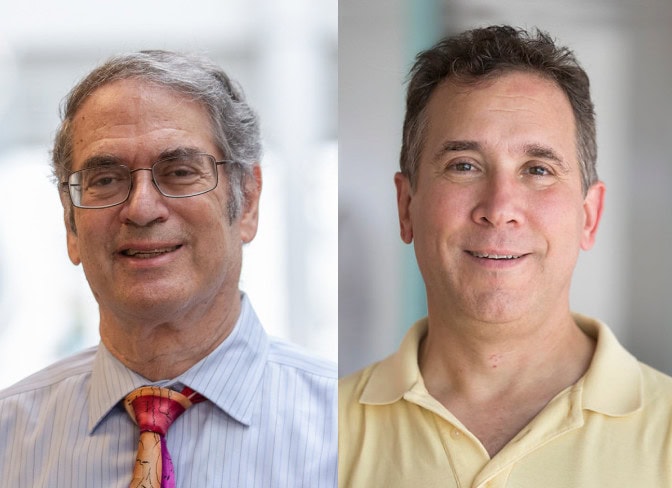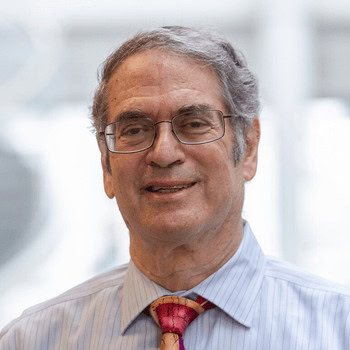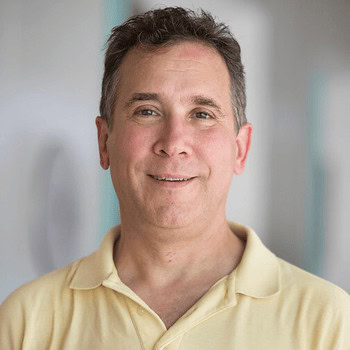
Mark Daskin and Mark Guzdial named AAAS Fellows
Fellowship in the AAAS is one of the highest honors accorded to US researchers.

Fellowship in the AAAS is one of the highest honors accorded to US researchers.
A supply chain engineer and a computing educator from Michigan Engineering are among the nine U-M faculty members newly elected fellows of the American Association for the Advancement of Science. AAAS is the world’s largest general scientific society, and the publisher of the journal Science.
The professors join 471 scientists and engineers from across the nation who were chosen by their peers for their “efforts toward advancing science applications that are deemed scientifically or socially distinguished,” according to AAAS.
The new fellows are Mark Daskin, the Clyde W. Johnson Collegiate Professor of Industrial and Operations Engineering (IOE); and Mark Guzdial, a professor of computer science and engineering, of education, and of information.
“Congratulations to our newest AAAS fellows, who exemplify both excellence in education and in real-world impact,” said Karen A. Thole, the Robert J. Vlasic Dean of Engineering and a professor of mechanical and aerospace engineering.
Location, location, location.

Daskin been recognized as an AAAS fellow for “distinguished contributions to location optimization and supply chain network design and its application to industrial, service and medical systems.”
Municipalities and businesses around the world have come to utilize Daskin’s location modeling research in determining where to site new facilities. In his early years, Daskin set out to help improve ambulance response times by choosing better locations for medical facilities. His work resulted in his Maximum Expected Covering Location Problem model, which is still in use today.
The model incorporated factors such as uncertainty into siting calculations, such as whether the nearest ambulance to a medical facility is in service or not. Facility location falls neatly within Daskin’s wider area of research, designs for supply chains under uncertainty, logistics for emergency responses and drug shortages.
“I am deeply honored by this recognition,” Daskin said. “I want to thank my colleagues, students, and family for their support, friendship and love over the years. You made my career possible.”
Daskin was an undergraduate at MIT, starting out with the intention to study math, chemistry or physics. But his attention eventually landed on civil engineering, and he would go on to earn his PhD there. He has served as an assistant professor at the University of Texas at Austin and a professor at Northwestern University, where he became chair of the Department of Industrial Engineering and Management Sciences.
Daskin arrived at the University of Michigan in 2010, taking on the role of IOE department chair for the next eight years. In 2017, he was elected to the National Academy of Engineering for “leadership and creative contributions to location optimization and its application to industrial, service and medical systems.”

Guzdial is honored for “distinguished contributions to the field of computing education research across multiple disciplines.”
One of his major insights is that computer programming can be made more appealing, and thus attract a wider range of people who could be proficient in it, by making it applied. He centered an intro to programming course around manipulating and creating digital media, including images, collages, sound effects, music, and video special effects, launched at Georgia Institute of Technology in 2003.
Guzdial was also one of the leads of the National Science Foundation’s Expanding Computing Education Pathways alliance. With Barbara Ericson, an associate professor of information and computer science and engineering at U-M and Guzdial’s wife, he received the Association for Computing Machinery’s (ACM) 2010 Karl V. Karlstrom Outstanding Educator award.
They moved to Michigan in 2018, where Guzdial helped launch the Program in Computing for the Arts and Sciences, which he now directs. The program is aimed at teaching computer programming in context, with courses geared toward science, the arts, justice, culture and the humanities. These courses are designed to serve students who need programming skills for careers in areas other than software development, and as of the winter term 2025, enrollment in the program exceeds 500 students even though none of the courses are requirements.
“I am thrilled by this recognition,” Guzdial said. “My career has been focused on giving students across disciplines the computing education that they need to be literate and capable in programming. The AAAS fellowship is an acknowledgement that my efforts have reached beyond students focusing on technology careers.”
Guzdial is also an ACM Distinguished Educator, a fellow of the ACM, and he received the 2019 ACM SIGCSE Outstanding Contributions to Education award.